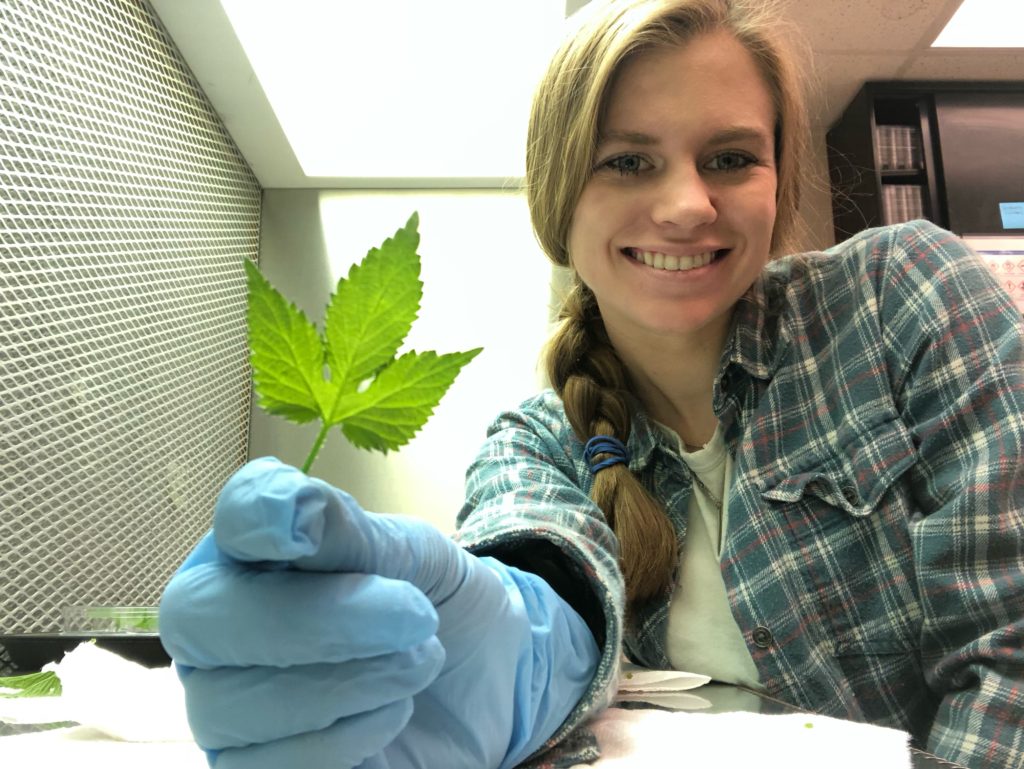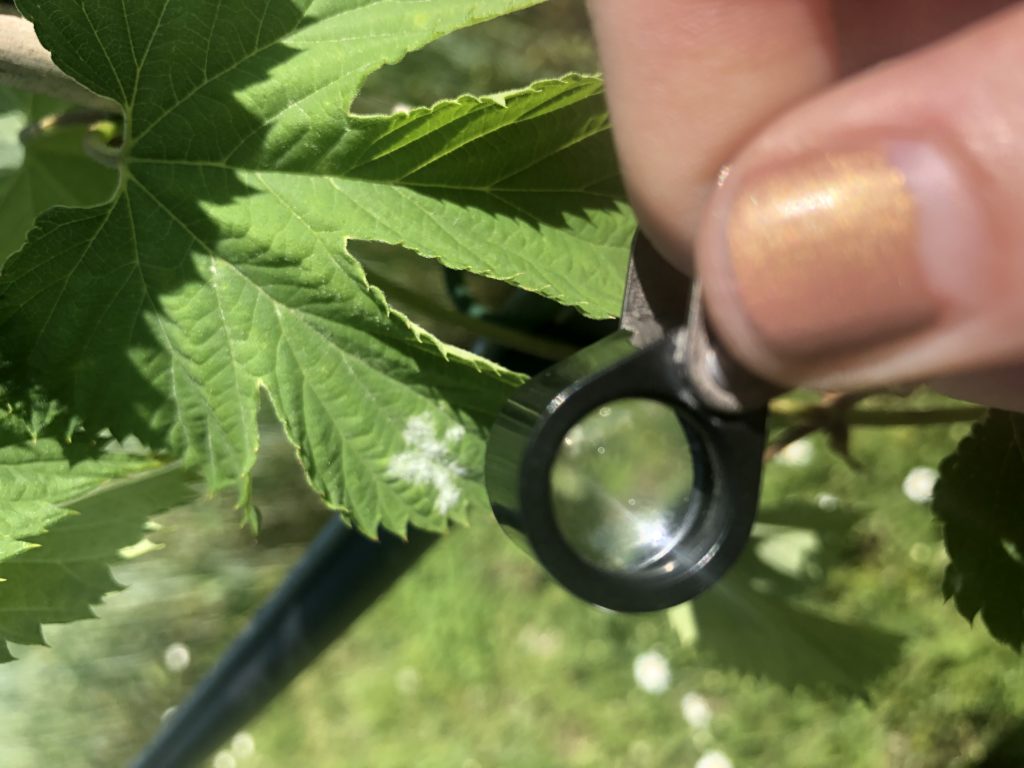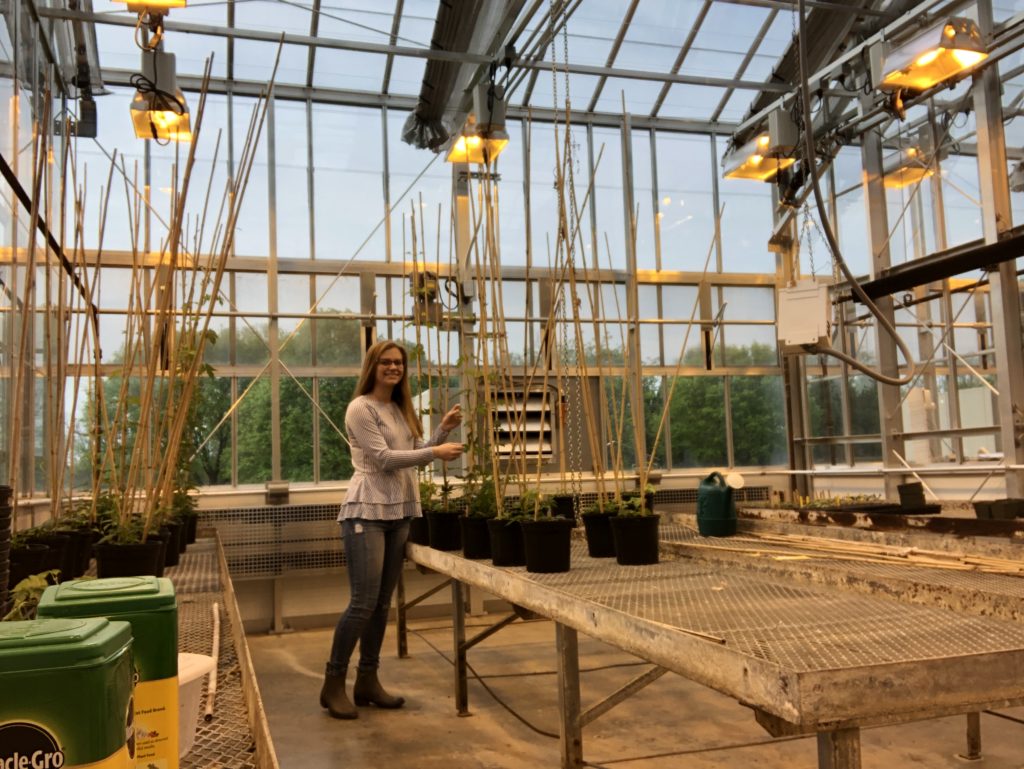Camille, Delta Phi Epsilon member, knows she has big plans for her life. While still an undergrad at Rochester Institute of Technology, she plans on pursuing her Ph.D. for agriculture science. “I’m very interested in nutrition and genetics in plants,” she says. “I want to someday be able to design a diet for individuals that helps them be their best self. Food is medicine and I want to help people have access to better and healthier foods.”

The power of plants was taught to Camille early on in life. Growing up in Central Valley California, Camille became very accustomed to agriculture. It was not uncommon to be constantly surrounded by plants and Camille always wanted to learn more. She wanted to learn about the environments and cultures that made the plants grow and thrive. “In my intro to biology classes I learned about how all living things are made up of DNA, pretty much just blueprints,” Camille says. “I became in love with the idea of being able to help people around me through manipulation of plant genetics.”
Camille was shown this passion could be a profession when she met a professor from Cornell AgriTech. This professor helped her obtain an internship in a plant pathology lab while still in high school. This position ultimately led her to a 2-year mentorship under a graduate student while in college as a research laboratory technician.
“Most days I maintain the greenhouse and conduct DNA extractions,” Camille says. “On less busy days I am out in the field helping set up other hop powdery mildew experiments and helping fellow lab mates collect samples from the fields.”

Hops are the flowers a top the plant Humulus Lupulus. Hops produce a bittering flavor but can also produce a floral or fruity flavor or aroma. Camille spends much of her time looking for the hop powdery mildew on the flowers. This mildew tends to grow on the top of the hop leaves and looks like a fine white powder in clusters. This mildew allows growers to know when there will be mating between the plants.
Camille’s work is to find where these different mating flowers are in the U.S. and provide that information to growers. “With that information they can calculate the likelihood of getting that mating type of getting both mating types,” Camille says.
Work such as this is necessary for growers to produce the plants to continue their livelihood. “I am benefiting hop growers across the nation,” Camille says. “Having that impact kept me interested and excited to share my work.”
